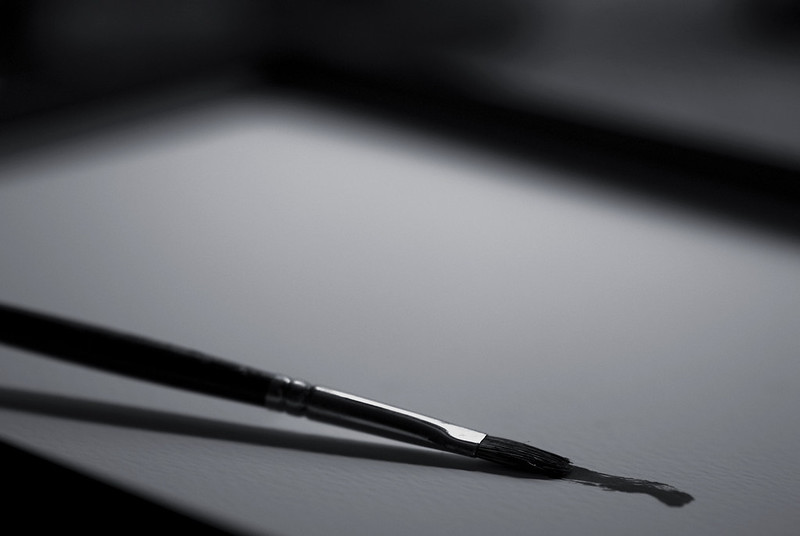There is nothing quite like the feeling of puncturing the thin shrink film around a new canvas. Getting ready to paint is a routine — the rumbling of the kettle as I thumb through my collection of teas, picking the perfect album to play on repeat for the evening. Putting on the highlighter yellow shirt from high school plastered with smudges of blacks, greens, and whites from years of previous paintings. Ideally, it’s a rainy night and I can sit on a carpeted floor, placing the canvas on my workspace (usually the lid of a large storage box, one also encased in paint, glitter, dried glue and ribbon from projects past). While I run my fingers over the woven cotton stretched over the simple wooden frame, my mind awakens and ideas start flowing.
I wasn’t always an artist, just like I wasn’t always a medical student. My relationship with art, much like the start of my journey through medicine, started with many frustrations. In grade school, I was enthralled by art class. Stepping into the art room was always magical to me, and I would stare starry-eyed at the assortment of supplies that lined the counters. Hundreds of beaten down old paintbrushes, the wooden handles varying in sizes to match our elementary school-sized hands, bottles of washable table-safe tempera paints, huge boxes of crayons to be shared amongst each table. The smell of worn down wax crayons in a cardboard box is one I never grew tired of. At the start of each lesson, I would be so motivated, aiming to make my project exactly like the one displayed by the teacher, and I’d often leave class with a sense of disappointment. Looking back, my perfectionism began in these spaces, a perfectionism that is seemingly a foundational trait of every medical student.
It took years to pocket the feeling of having to be the world’s next renowned artist — years of quickly crumpled up sketches and canvases in the corner of my room, angrily painted over. But throughout the frustration, I never stopped loving art. You’re supposed to keep doing what you love. I embraced the process — it’s messy, maddening and relaxing all at the same time. I still came to love all things in the realm of the creative arts, and endeavored with intention to bring out the creative spirits of those around me. This was in the form of hosting a few dozen paint nights — painting mugs, canvases vinyl records — anything that was paintable with friends, with family, with the random residents of my college dorm. I found much greater joy in seeing people look at their work with awe and pride than trying to be perfect myself. I blossomed, and my art did too.
I think about my journey through medicine and compare it to my journey as an artist. All the repeated efforts to be the perfect student, to get the perfect grades, and to somehow acquire the remote skill of time management to be the perfect physician. I idolized the displays at the front of the classroom — my attendings and senior residents who mentored me. I often left rotations feeling like my merit was equivalent to the crumbled sketchbook papers I’d toss in the trash can for years. The frustration and stress from my medical training poured out of me like a tea kettle, and in the rising steam of it all escaped so much time that could have been savored if only I had remembered that you’re supposed to keep doing what you love. As I reflect back on medical school as a fourth year student, I realize it is much easier said than done to let go of the never ending ladder we climb throughout medicine to get to the top, let alone to keep our hobbies close.
I opened a canvas the other night, as a reminder. The paintbrush felt foreign in my hand.
I went ahead anyway.
Image credit: paintbrush (CC BY 2.0) by JanetR3
WiTTY Wednesdays is an initiative showcasing the works of our Writers-in-Training Program writing interns. WiT is a year-long internship for budding medical student writers. Our interns receive intensive, one-on-one mentoring from our medical student program directors and publish at least 3 pieces during the course of their internship. If you are interested in learning more about the program, please contact us at editorinchief@in-training.org.

